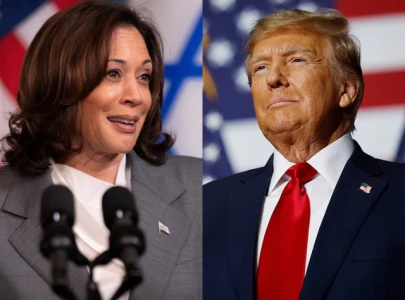
In recent developments, Pakistan has thrown its support behind Iran's call to impose an oil boycott on Israel at the OIC. This move marks a significant step in the diplomatic relations between these countries and reflects a broader geopolitical strategy.
Iran has been vocal in its opposition to Israeli policies, particularly concerning its actions in Palestinian territories. As part of its campaign, Iran has called on other nations to cease purchasing oil from Israel. The idea behind this boycott call is to exert economic pressure on Israel, hoping it will lead to changes in its policies and actions.
By supporting Iran's oil boycott call, Pakistan is reinforcing its position that the international community must take concrete actions, not just issue statements, to pressure Israel into complying with global norms.
Pakistan has consistently supported the Palestinian people's right to self-determination, advocating for the establishment of an independent state based on the pre-1967 borders. This stance aligns with international law as well as numerous UN resolutions that recognise the illegality of Israeli settlements and the need for a two-state solution.
Pakistan's relationship with Israel is characterised by a longstanding policy of non-recognition and limited diplomatic engagement. Officially, Pakistan does not recognise Israel as a state, primarily due to its strong support for the Palestinian cause and its commitment to advocating for Palestinian statehood. This stance reflects Pakistan's historical and ideological alignment with Arab nations and the broader Muslim world in opposing Israeli policies in the occupied territories. Despite occasional behind-the-scenes interactions and discussions on various issues, including regional security, Pakistan has maintained a public position of solidarity with the Palestinians and has refrained from establishing formal diplomatic relations with Israel. This policy remains a significant element of Pakistan's foreign relations, shaping its stance in international forums and influencing its interactions with other countries in the region.
In a world where moral clarity is often in short supply, Pakistan's stance signals its unwavering support for the oppressed, making it clear that in the face of injustice, neutrality is not an option.
Economic sanctions have historically been a powerful tool for achieving political change. During the 1973 Arab-Israeli War, the use of oil as an economic weapon by Arab states led to a significant shift in global attitudes toward the Middle East conflict. The resulting oil embargo sent shockwaves through the global economy, demonstrating the influence that oil-producing nations wield in the international arena.
Today, the OIC must channel that same unity, leveraging its collective oil resources as a force for peace and justice, aiming to curb Israel's unchecked aggression against Palestinians.
History is replete with examples of how economic resistance can challenge injustice and promote peace. The Gandhi-led boycott of British goods in the 1930s played a crucial role in India's independence movement. Similarly, the anti-apartheid sanctions against South Africa in the 1980s contributed significantly to the dismantling of apartheid, and the divestment campaigns against Sudan during the Darfur conflict in the 2000s pressured the Sudanese government to reconsider its policies.
The potential impact of an oil embargo on Israel is a matter of considerable debate. An OIC-led embargo would certainly signal strong regional disapproval of Israel's policies, sending a powerful political message, but whether it would inflict significant economic damage on Israel is less certain.
Israel has taken substantial steps to diversify its energy sources in recent years. With the discovery of vast natural gas reserves in the Mediterranean Sea, Israel has become largely self-sufficient in energy, even transitioning from a net energy importer to an exporter. The Tamar and Leviathan gas fields, discovered in 2009 and 2010 respectively, have provided Israel with a steady supply of natural gas, which now powers much of the country's electricity grid. Additionally, Israel has been investing in renewable energy, particularly solar power, further reducing its dependence on oil imports.
Moreover, Israel has strong energy partnerships with countries outside the OIC, including the US, Greece and Cyprus. These alliances provide alternative avenues for energy imports, potentially mitigating the impact of any OIC-led embargo.
That said, an oil embargo could still have symbolic and political consequences. It might increase Israel's energy costs by forcing it to seek more expensive alternatives, and it could also strain its relationships with certain countries. Furthermore, the embargo could amplify international pressure on Israel, particularly if it is coupled with other forms of economic and diplomatic isolation.
The ongoing Israel-Hamas conflict has claimed the lives of over 40,000 Palestinians in Gaza, with the numbers escalating daily. More than 92,000 Palestinians have been injured, many of whom face life-threatening conditions without adequate medical care. This catastrophic loss of life demands the urgent need for international intervention and a re-evaluation of the actions leading to such widespread suffering. The world cannot stand by as an entire population is subjected to this level of violence and devastation.
The growing tensions between Iran and Israel further complicate the Middle East situation. Iran's support for Palestinian resistance groups, coupled with Israel's attacks on Iranian targets in Syria and beyond, has heightened the risk of a broader conflict. An Iran-Israel war could have catastrophic implications, not just for the region but for global stability. The OIC's support for Iran's oil boycott of Israel is a calculated move to pressure Israel diplomatically and economically, potentially averting a larger conflict.
The current geopolitical landscape in the Middle East is increasingly shaped by these conflicts. The alignment of countries like Pakistan with Iran in opposing Israeli policies is part of a broader shift in regional alliances. The OIC's stance on the Israeli-Palestinian conflict, particularly its support for economic measures like the oil boycott, could significantly influence the future of the region. If successful, these actions could lead to a recalibration of power in the Middle East, potentially ushering in a new era of resistance against Israeli policies and support for Palestinian rights.








1729685382-0/Untitled-design-(57)1729685382-0-270x192.webp)


1730706072-0/Copy-of-Untitled-(2)1730706072-0-270x192.webp)
COMMENTS
Comments are moderated and generally will be posted if they are on-topic and not abusive.
For more information, please see our Comments FAQ